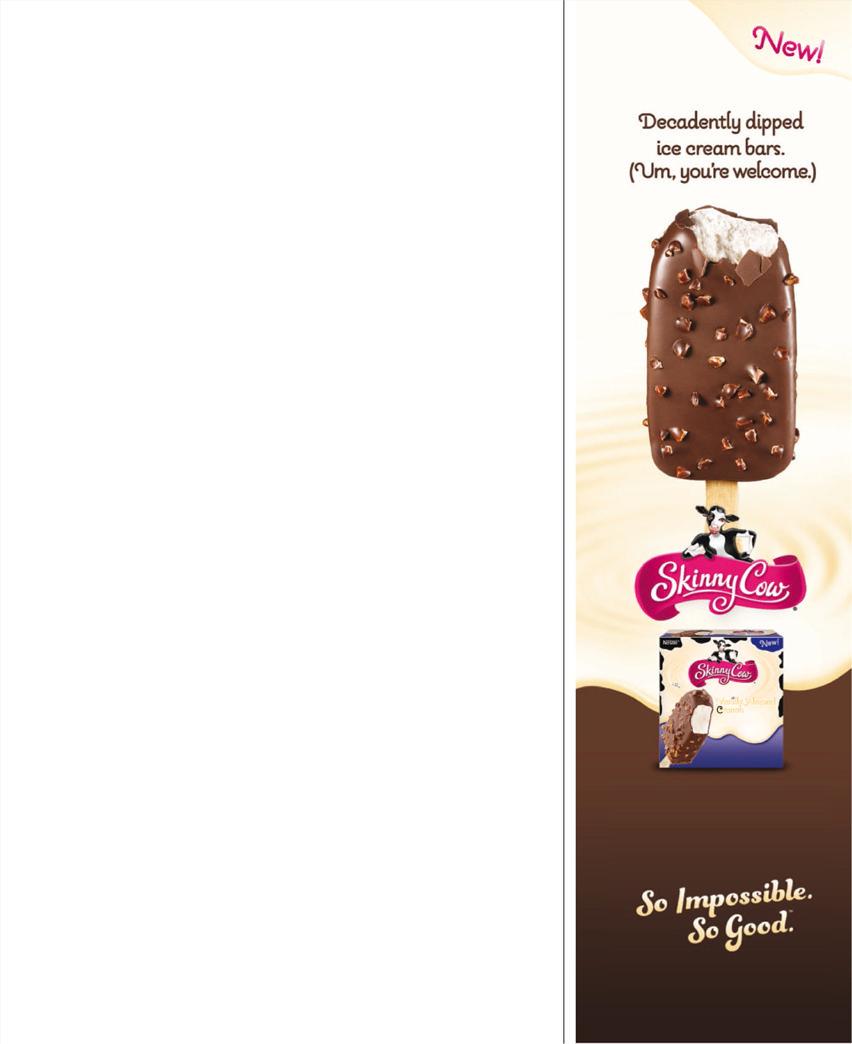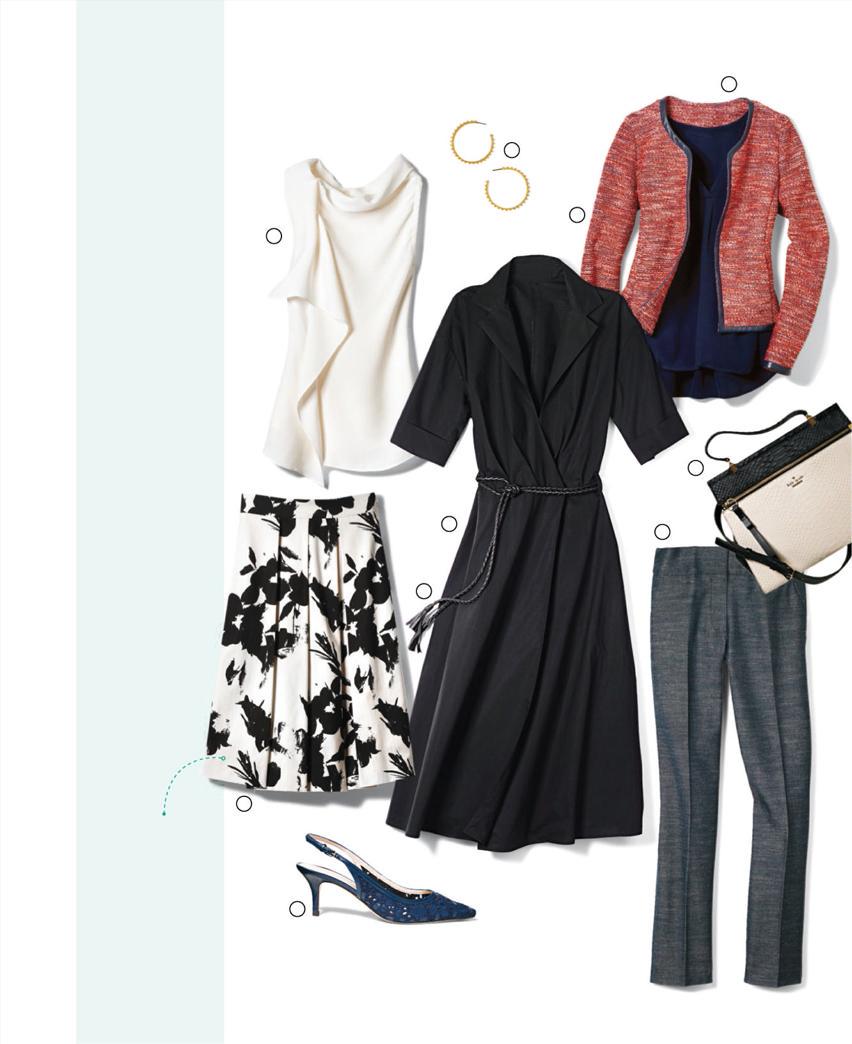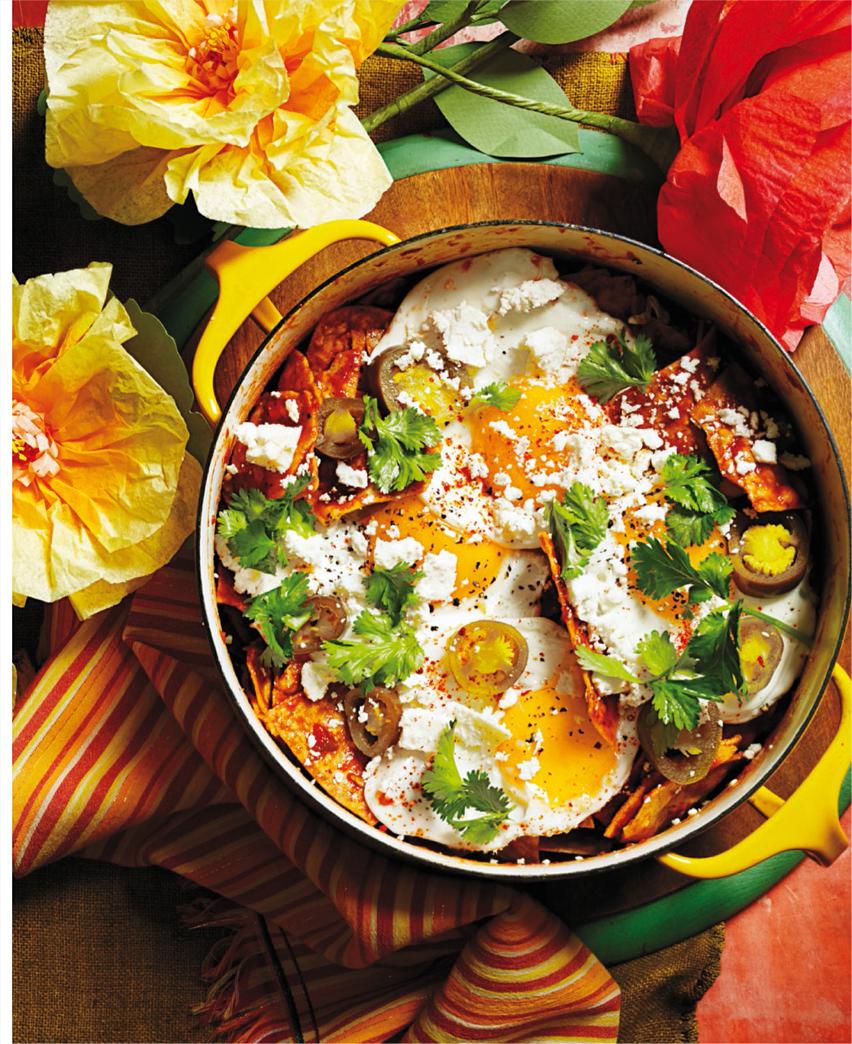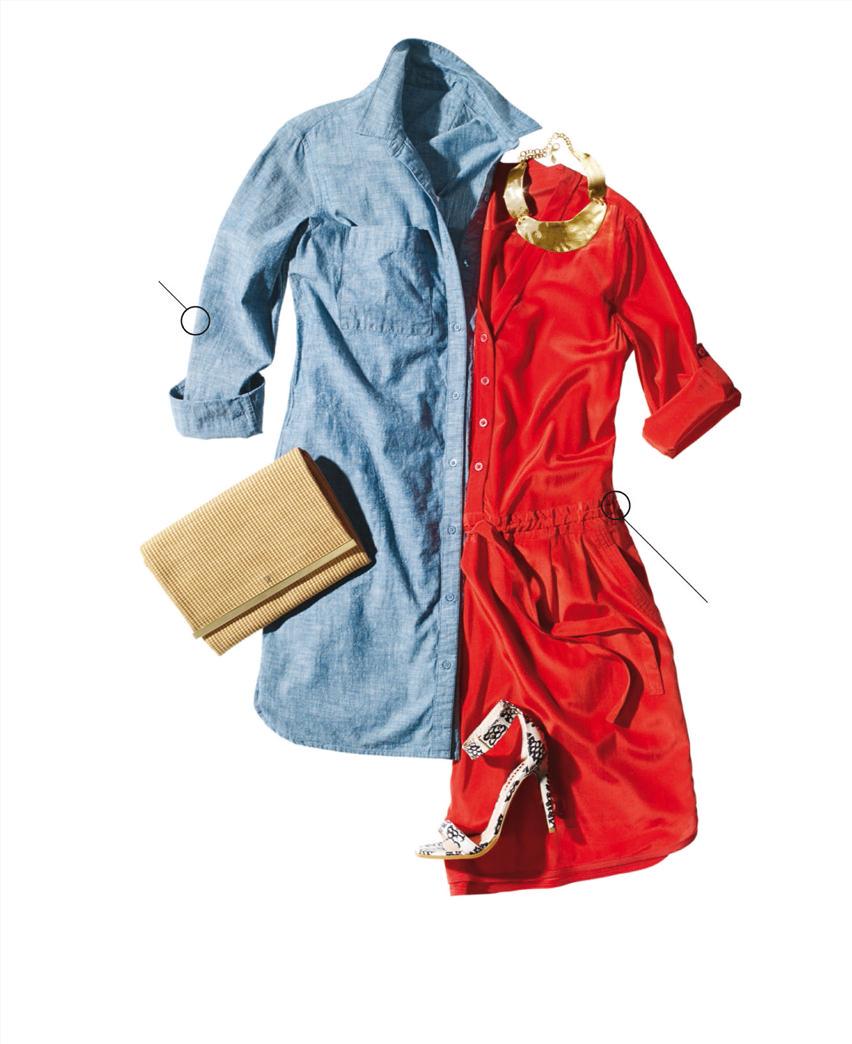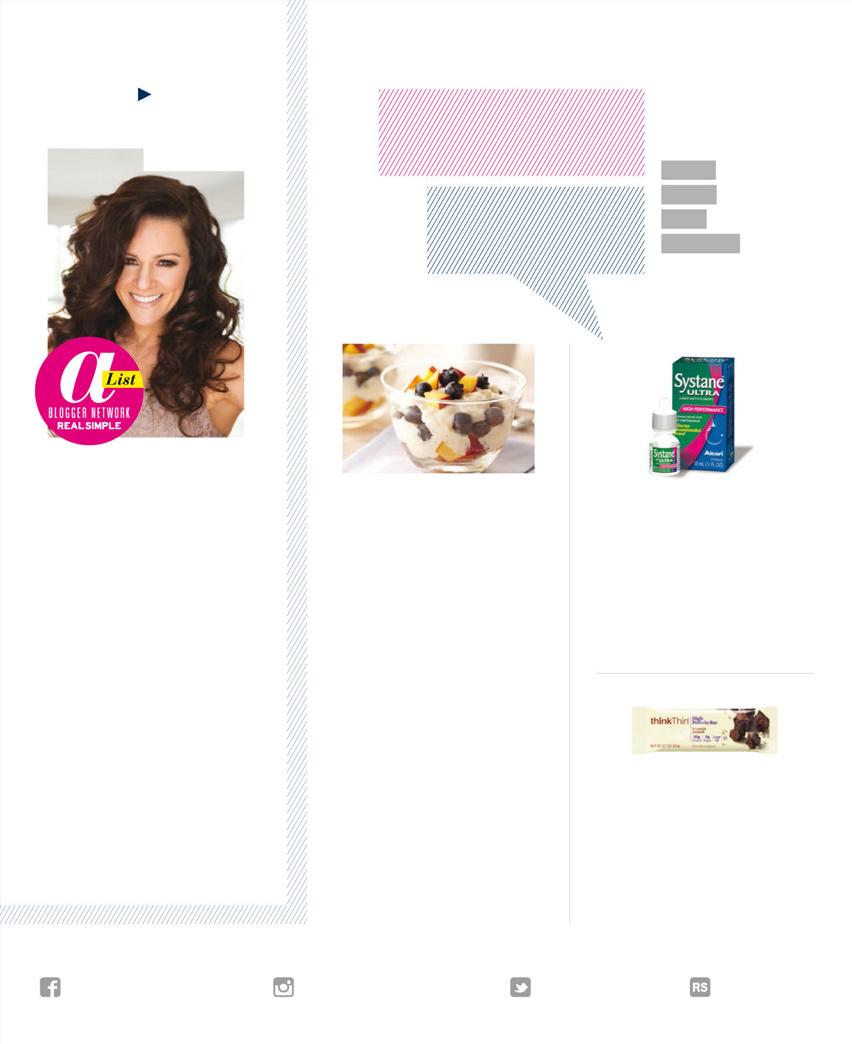
8 minute read
Life Lessons
from RS - June 2015
GOOD READ
The write stuff
Advertisement
When Emma Straub was a struggling novelist, her best-selling novelist father showered her with praise. But after her success began to rival his? That’s a different story (literally).
I WROTE MY FIRST NOVEL when I was 22. It was a mess—Wuthering Heights set in my high school, with a fire and some incest between unknowing siblings. I didn’t know how to properly format dialogue or how to structure a plot or how to do anything else. Those were all details I planned to work out later—small potatoes. What mattered to me was that I wanted to be a novelist—and voilà, I had written a novel. I gave the book to my father to read, and within a day he left me a voice mail saying that it was terrific and that I was going to sell it for $300,000. This wasn’t just totally pie-in-the-sky enthusiasm. Unlike most supportive parents, who taught French or counted out change at the bank, he knew the industry. My father was (and is) a successful novelist, so successful that he has never had to work another job, a very rare thing in today’s publishing landscape. He’s published more than 20 books, most of them novels, most of them best sellers—the kinds of books you could buy in the bookstore or at the airport or even at the supermarket checkout counter, when such things existed. He wrote his first novel in his late 20s and sent it off to a single publisher, who bought it.
I wish I could say the same was true for me, that such luck ran in the family. Instead, and rather quickly, the book my father had so sweetly praised was rejected by
Photograph by Abelardo Morell
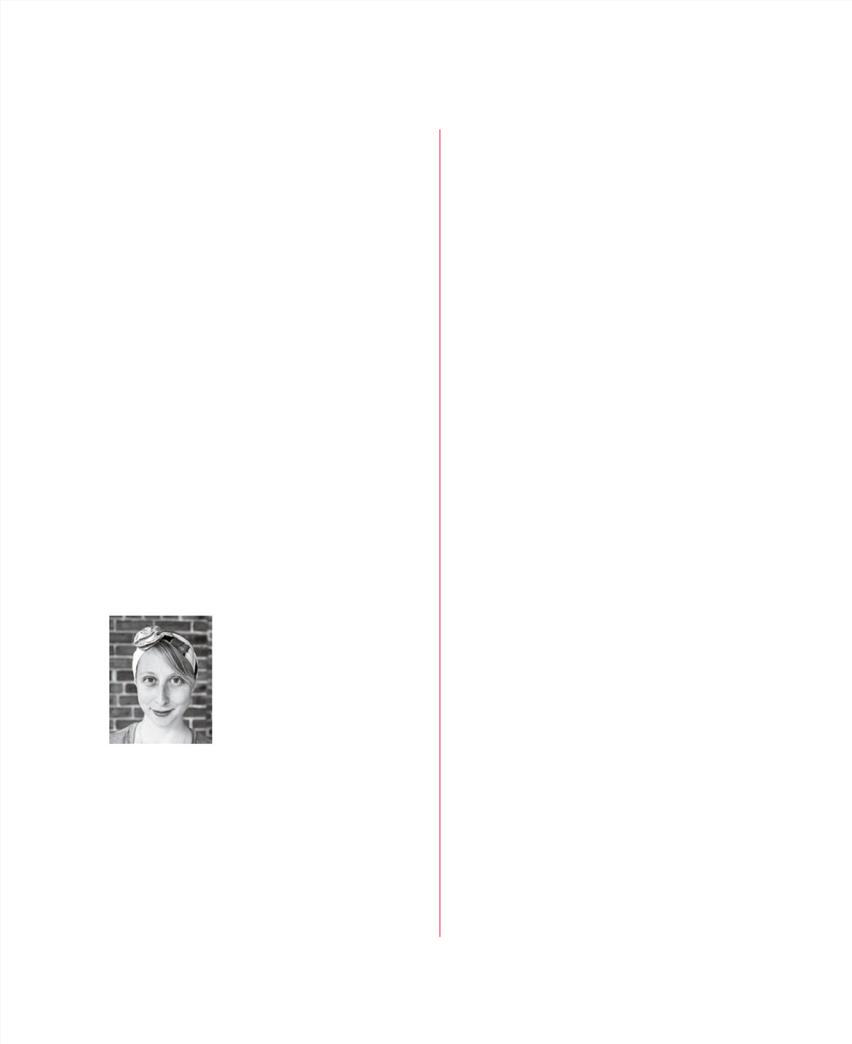
every publisher in New York. After all was said and done, the book garnered about a hundred rejections—no small feat, given that the majority of books are published by five publishers. If there were a literary prize for Most Rejections, I would have won it, hands down. I was dismayed, of course, but I knew better than to wallow—writing wasn’t an easy job, and if this book wasn’t my ticket in, maybe the next one would be. I got back to work. But this scenario happened again and again. I wrote books; my father read them and pronounced them wonderful, surefire hits…and then they wouldn’t sell. Still, my dad’s faith in me never wavered, even as I worked a host of other jobs—for a fancy cookbook publisher, at a clothing store for teens and tweens, as a personal assistant to a musician, in a bookstore. I even taught writing classes in my living room. Some of the jobs, like being a bookseller, were great and contributed to my writing life. Some, like selling overpriced jeans to 12-year-olds, were only good insofar as they were fodder for future stories. And they were—because it finally happened. I sold a book! I was going to make it big! Sort of. My first book, a collection of stories, sold for a very modest amount of money—about enough to buy half of a fancy handbag. I was beyond thrilled. My parents came to every single event I did in New York City, always in the front row, laughing loudly in all the right spots. And then shortly thereafter I sold a novel for what felt like a lot of money, enough for my husband and me to turn the dank basement of our house into an actual office space, complete with the hot pink cabinets of our dreams. That’s when things got weird. I was getting lots of press—magazines took my photograph and wrote articles about me, and I got asked to do zillions About the author of events. Whenever I would call my Emma Straub’s dad to tell him about the new bits of best-selling novel, press or things on the schedule, he
The Vacationers, is would say, “Why didn’t they ask me out now in paperback. to do that?” As if it made sense for (See Expertise, page Vogue to ask him to write a short story 48, for more about the inspired by one of the new fall trends. book.) She lives in At first, it seemed funny, but then I New York City with her realized that he was serious—he was husband and son. Fol- actually jealous. “Why didn’t they ask low her @emmastraub. me to do this [any number of silly events at bars in Brooklyn that he wouldn’t have wanted to do in the first place]?” I think one of the problems was that my dad saw everything I did— he had Google Alerts set up for my name, so he’d often call to tell me that he’d seen something before I had.
When my first novel was brand-new and I still wore high heels to all my events, my father and I did one together in the fall. It was at a Barnes& Noble on the Upper East Side, and my dad hogged the microphone for a good two-thirds of the evening. It made me feel like a child who’d been given a seat at the grown-ups’ table, only to be talked over and ignored. He’s a great talker, and I love to listen to him, but for once I thought, Hey, I’m here, too.
My third book sold for enough money that suddenly it seemed like I might be able to do what my father did—make enough from my books to support my family, which now included my infant son. The week that it was published, my editor called to tell me that the book had made The List—the New York Times’ Bestseller List. It was number 19, which meant that it was on the extended list and that my name wouldn’t be printed in the newspaper. I was ready for Champagne and balloons, but when I told my dad I’d hit the list, he said something to the effect of “Well, not really.…” When I protested, he assured me that being number 19 was still very good, something like winning Miss Congeniality at a beauty pageant, and that I was probably going to get onto the “real” list soon.
He copped to all this, eventually. Not that he was jealous, per se, but that the experience of seeing me succeed in his field was more complicated than he’d thought it would be. I don’t think it had ever occurred to him that his feelings about my success as a writer could be anything but glitter and gold, and he was as surprised as I was.
Of course, complicated feelings rarely run in only one direction.

A brand-new site curated by the pros and editors of REAL SIMPLE, THIS OLD HOUSE, PEOPLE, and more !

PHOTOS: (TOP) ERICA GEORGE DINES; (MIDDLE) WENDELL T. WEBBER; (BOTTOM) KRISTINE LARSEN
Join the party! theSnug.com
I recently read an interview between Sofia Coppola and Anjelica Huston, in which they talked about being the female offspring of powerful men in their field. Coppola described how she still feels like a kid around her father, that they’re not professional equals. I certainly felt that way—my father has decades of experience on me—but all of a sudden we were both Writers. I was no longer aspiring, no longer a total naïf. I was a professional, just like him. I think part of the problem is lack of a clear hierarchy—one isn’t a Junior Writer or a Senior Writer or the CEO. Once you publish a book, you’re a novelist, just like that, with no possibility of a title change on the horizon. I wonder how any 30-year veteran of a job would feel about their kid suddenly having the exact same position.
One of the great pleasures of my life has been my friendship with my father. But real friendships aren’t easy—they change and flex and bend over time and are shot through with jealousy and lots of other things we all try to ignore. A few weeks ago, my dad and I went out for a quick dinner after an event I did with another writer. (He was in the third row this time.) It was cold, and we zipped across the street to a glorified diner. He ordered a chocolate milk shake, and we ate and talked. At the end of our meal, for no reason, he said something to me about how proud he was of me, and how much he loved me. His eyes were damp, and it wasn’t because he was sorry to hit the bottom of his shake. That’s where we are now—a bit soggy, sharing onion rings, right as rain.
LIFE LESSONS ESSAY CONTEST: WHAT SINGLE DECISION CHANGED YOUR LIFE?
Did a single decision change your life? Tell us about it. Would your world now be completely different—even unthinkable—if, at some point in the past, you hadn’t made a seemingly random choice? Maybe you stayed a few extra minutes at a party—and met your soul mate. Maybe you decided to have lunch with a friend or quit a job or just took the long way home. If you can’t imagine the rest of your life without what happened next, write it down and share it with us.
Go to realsimple.com/lifelessonscontest for complete contest rules and to read the winning essays from last year’s contest. Enter Real Simple’s eighth annual Life Lessons Essay Contest and you could have your essay published in Real Simple and receive a prize of $3,000.
SEND YOUR TYPED, DOUBLESPACED SUBMISSION (1,500 WORDS MAXIMUM, PREFERABLY IN A MICROSOFT WORD DOCUMENT) TO LIFELESSONS@REALSIMPLE. COM. CONTEST BEGAN AT 12:01 A.M. EST ON MONDAY, MAY 11, 2015, AND RUNS THROUGH 11:50 P.M. EST ON MONDAY, SEPTEMBER 21, 2015. ALL SUBMITTED ESSAYS MUST BE NONFICTION. OPEN TO LEGAL RESIDENTS OF THE UNITED STATES AGE 19 OR OLDER AT TIME OF ENTRY. VOID WHERE PROHIBITED BY LAW. (ENTRIES WILL NOT BE RETURNED.)



